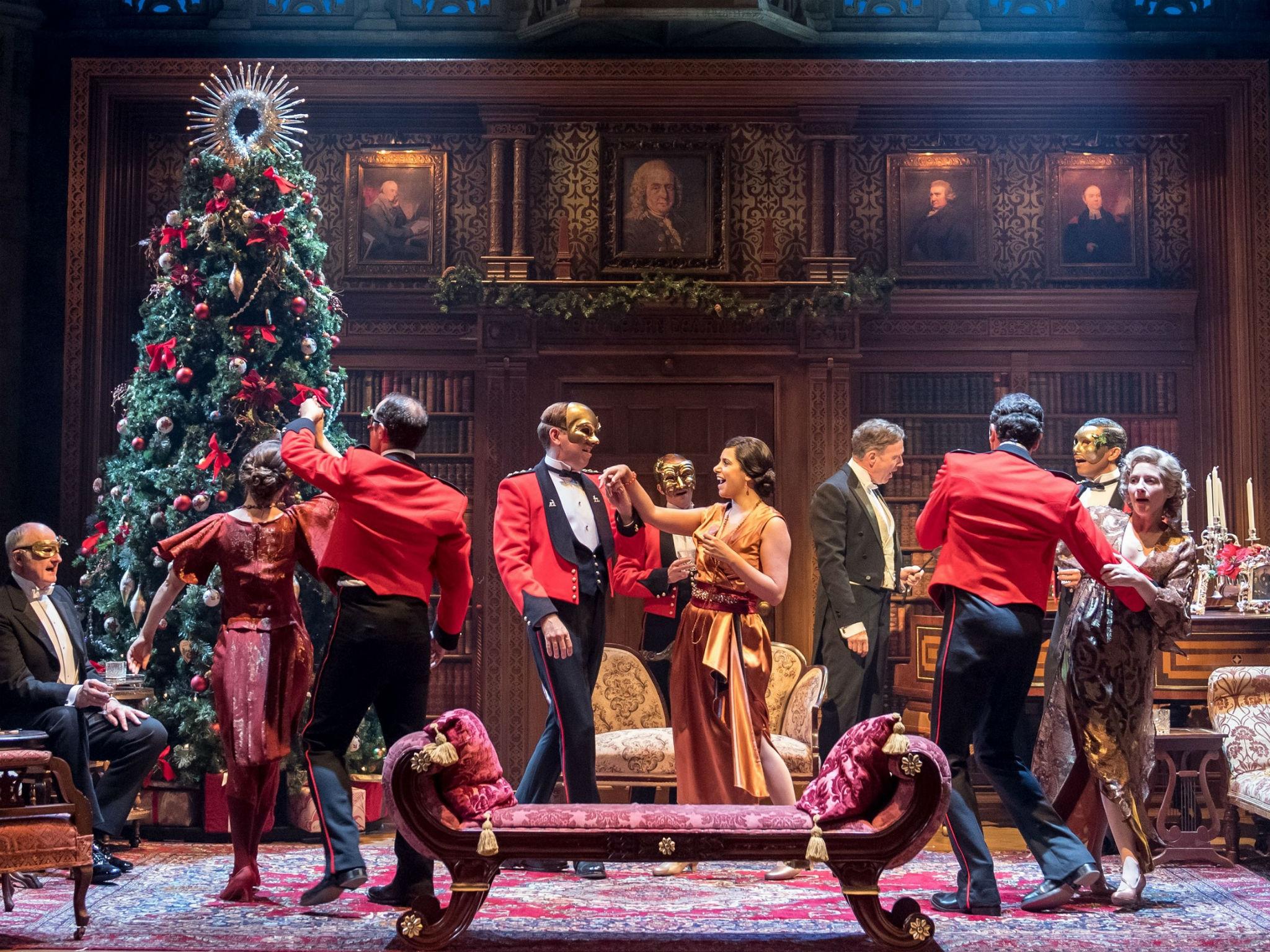Love's Labour's Lost and Much Ado About Nothing, Theatre Royal Haymarket, review: 'An invigorating tonic'
The productions underline the rich resonances between these comedies

There has long been debate over Love's Labour's Won, Shakespeare's lost play, mentioned in a couple of lists but surviving neither in the First Folio nor in any other form. Is it really missing or is this the alternative title for an extant play, so-called because of the popularity of the earlier Love's Labour's Lost?
In this deeply delightful pairing, which began life in Stratford two years ago, director Christopher Luscombe puts to the test the theory that the other linked piece is Much Ado About Nothing. Not in the relation of a sequel of course, since the plays have no overlapping characters. But the productions, which use the same splendid cast, underline the rich resonances between these comedies, not least in their giving us the chance to savour Edward Bennett and Lisa Dillon as two wittily skirmishing couples – the pair graduating, with keen insight, from the youthful raillery of Berowne and Rosaline in Love's Labour's Lost to the bickering of those older, more bruised sparring partners, Beatrice and Benedick, who are “too wise to woo peaceably” in Much Ado.
Among many other points of similarity (masked face-offs, so to speak; mistaken identities etc), there are prominent comic eavesdropping scenes in which characters learn disconcerting truths while farcically struggling not to blow their own covers. Luscombe has set the plays on either side of the Great War. They are relocated by Simon Higlett's handsome designs in a rather Downton Abbey recreation of Charlecote Park (near Stratford). He's not the first director to imagine Love's Labour's Lost in the last golden summer of 1914. It certainly suits the mood of the play's unorthodox, sober ending – in which romantic resolutions are suspended for a “twelvemonth and a day” – that it becomes tacitly evident that the young lords (who march off in khaki uniform) will be passing this probationary period at the Front, perhaps never to return. Luscombe's original stroke is to place Much Ado, with its demobbed soldiers anxious for some merry respite, during the Christmas festivities of 1918. Part of the house, we see, has been requisitioned as a military hospital (its transformation back to what it was feels a bit too swift and frictionless). The normally inexplicable malignity of Don John (Sam Alexander) now seems to arise in part from his bitterness at arriving home on a crutch with a disabling war wound.
The productions offer several kinds of pleasure. Seen in sequence, they let you trace a wide, thematically coherent trajectory that begins with four naive, pompous young men taking an absurd vow of celibacy (“Flat treason 'gainst the kingly state of youth”) and ends, the best parts of ten acts later, with a kiss between Beatrice and Benedick, those inveterate warriors with words, whom near-tragedy has shocked from verbal evasions. At the same time, the differences allow for some delectable cross-casting – with Steven Pacey brilliantly funny as the conceitedly pedantic schoolmaster Holofernes and an unsettling mix of the heartbreakingly anguished and the misogynistic as the Leonato, the father of the wrongly defamed heroine of Much Ado. In the latter play, Nick Haverson is side-splitting as a spectacularly twitchy and verbally inept Dogberry, the constable whose interrogation of his prisoners is here conducted in such a Marx Brothers-style crowded office that it makes the cabin scene in A Night at the Opera look like the cutting-edge ergonomics.
Costard, the gardener, Haverson's character in Love's Labour's Lost, is bemused by the sound of incidental music and, in a running gag, keeps looking for its source under beds and in pots etc. Nigel Hess's aching, bitter-sweet score anchors the proceedings in period songs that evoke Gilbert and Sullivan, Ivor Novello and Noel Coward. The scene in which the four young men unwittingly reveal to each other their true feeling about the women is staged on rooftop in pyjamas and dressing gowns. It's ingeniously orchestrated but a tad overdone and too ingratiating. But if there's the odd sequence in this double bill where you feel that you are being gorged on National Trust chocolate, in general it's an invigorating tonic.
To 18 March 2017; 020 7930 8800
Join our commenting forum
Join thought-provoking conversations, follow other Independent readers and see their replies
Comments